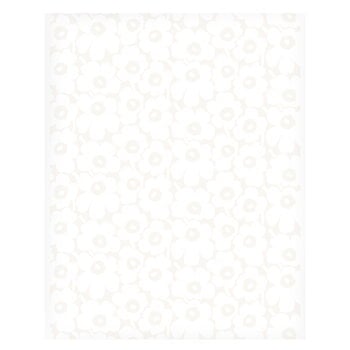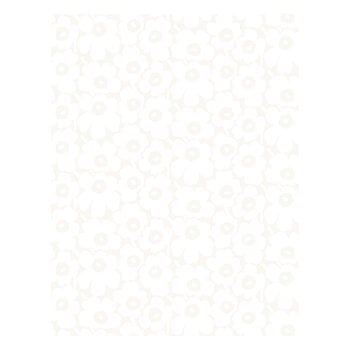Marimekko's Pieni Unikko fabric features the iconic floral pattern by Maija Isola in cooling shades of white. The fabric is made of 100% cotton and has an acrylic coating, which makes it extremely easy to keep clean.
The instantly recognizable Unikko pattern came about in 1964 after Armi Ratia, the founder of Marimekko, had announced in public that no floral fabrics would be made at Marimekko. However, textile designer Maija Isola was not one for rules or restrictions – in protest, she designed a complete collection of bold floral patterns. One of them was named Unikko, Finnish for "poppy", and it quickly became a favourite of Ratia, as well. Today, Unikko is one of Marimekko's best-known patterns, and it adorns a variety of objects from fabrics and bed linen to Sami Ruotsalainen’s clean-lined Oiva tableware collection.






